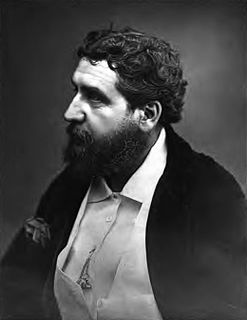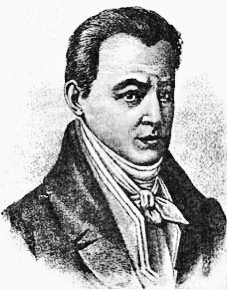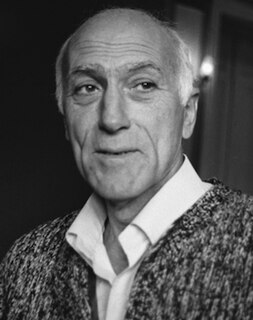
The Encyclopædia Britannica is a general knowledge English-language online encyclopaedia. It was formerly published by Encyclopædia Britannica, Inc., and other publishers. It was written by about 100 full-time editors and more than 4,000 contributors. The 2010 version of the 15th edition, which spans 32 volumes and 32,640 pages, was the last printed edition.
Political fiction employs narrative to comment on political events, systems and theories. Works of political fiction, such as political novels, often "directly criticize an existing society or present an alternative, even fantastic, reality". The political novel overlaps with the social novel, proletarian novel, and social science fiction.

The Encyclopædia Britannica, Eleventh Edition (1910–11), is a 29-volume reference work, an edition of the Encyclopædia Britannica. It was developed during the encyclopaedia's transition from a British to an American publication. Some of its articles were written by the best-known scholars of the time. This edition of the encyclopaedia, containing 40,000 entries, is now in the public domain, and many of its articles have been used as a basis for articles in Wikipedia. However, the outdated nature of some of its content makes its use as a source for modern scholarship problematic. Some articles have special value and interest to modern scholars as cultural artifacts of the 19th and early 20th centuries.
In literary criticism, stream of consciousness is a narrative mode or method that attempts "to depict the multitudinous thoughts and feelings which [sic] pass through the mind" of a narrator. The term was coined by Alexander Bain in 1855 in the first edition of The Senses and the Intellect, when he wrote, "The concurrence of Sensations in one common stream of consciousness enables those of different senses to be associated as readily as the sensations of the same sense" (p. 359). But it is commonly credited to William James who used it in 1890 in his The Principles of Psychology. In 1918, the novelist May Sinclair (1863–1946) first applied the term stream of consciousness, in a literary context, when discussing Dorothy Richardson's (1873–1957) novels. Pointed Roofs (1915), the first work in Richardson's series of 13 semi-autobiographical novels titled Pilgrimage, is the first complete stream-of-consciousness novel published in English. However, in 1934, Richardson comments that "Proust, James Joyce, Virginia Woolf & D.R. ... were all using 'the new method', though very differently, simultaneously". There were, however, many earlier precursors and the technique is still used by contemporary writers.
British literature is literature from the United Kingdom of Great Britain and Northern Ireland, the Isle of Man, and the Channel Islands. This article covers British literature in the English language. Anglo-Saxon literature is included, and there is some discussion of Latin and Anglo-Norman literature, where literature in these languages relate to the early development of the English language and literature. There is also some brief discussion of major figures who wrote in Scots, but the main discussion is in the various Scottish literature articles.

Ancient Greek literature is literature written in the Ancient Greek language from the earliest texts until the time of the Byzantine Empire. The earliest surviving works of ancient Greek literature, dating back to the early Archaic period, are the two epic poems The Iliad and The Odyssey, set in an idealized archaic past today identified as having some relation to the Mycenaean era. These two epics, along with the Homeric Hymns and the two poems of Hesiod, Theogony and Works and Days, comprised the major foundations of the Greek literary tradition that would continue into the Classical, Hellenistic, and Roman periods.

Edward James Mortimer Collins was an English poet and novelist.

Ukrainian literature is literature written in the Ukrainian language.
The sentimental novel or the novel of sensibility is an 18th-century literary genre which celebrates the emotional and intellectual concepts of sentiment, sentimentalism, and sensibility. Sentimentalism, which is to be distinguished from sensibility, was a fashion in both poetry and prose fiction beginning in the eighteenth century in reaction to the rationalism of the Augustan Age.

DC Books is the largest publisher in Kerala, the leading publisher of books in Malayalam, and one of the ten biggest publishers in India. It also operates one of the largest book store chains in India, with a network of over 45 bookshops under the DC Books and Current Books brands as well as over 50 agencies in Kerala.
The social novel, also known as the social problemnovel, is a "work of fiction in which a prevailing social problem, such as gender, race, or class prejudice, is dramatized through its effect on the characters of a novel". More specific examples of social problems that are addressed in such works include poverty, conditions in factories and mines, the plight of child labor, violence against women, rising criminality, and epidemics because of over-crowding, and poor sanitation in cities.

Mzechabuk "Chabua" Amirejibi, was a Georgian novelist and Soviet-era dissident notable for his magnum opus, Data Tutashkhia, and a lengthy experience in Soviet prisons.
Proletarian literature refers here to the literature created by working-class writers mainly for the class-conscious proletariat. Though the Encyclopædia Britannica states that because it "is essentially an intended device of revolution", it is therefore often published by the Communist Party or left wing sympathizers, the proletarian novel has also been categorized without any emphasis on revolution, as a novel "about the working classes and working-class life; perhaps with the intention of making propaganda". This different emphasis may reflect a difference between Russian, American and other traditions of working-class writing, with that of Britain. The British tradition was not especially inspired by the Communist Party, but had its roots in the Chartist movement, and socialism, amongst others. Furthermore, writing about the British working-class writers, H Gustav Klaus, in The Socialist Novel: Towards the Recovery of a Tradition (1982) suggested that "the once current [term] 'proletarian' is, internationally, on the retreat, while the competing concepts of 'working-class' and 'socialist' continue to command about equal adherence".
Rajasthani literature written in various genres starting from 1000 AD. But, it is generally agreed that modern Rajasthani literature began with the works of Surajmal Misrana. His most important works are the Vansa Bhaskara and the Vir Satsai. The Vans Bhaskar contains accounts of the Rajput princes who ruled in what was then Rajputana, during the lifetime of the poet (1872–1952). The Vir Satsai is a collection of hundreds of couplets.
Adam Thorpe is a British poet and novelist whose works also include short stories, translations, radio dramas and documentaries. He is a frequent contributor of reviews and articles to various newspapers, journals and magazines, including the Guardian, the Poetry Review and the Times Literary Supplement.

Kenyan literature describes literature which comes from Kenya. Kenya has a long oral and written literary tradition, primarily in English and Swahili, the two official languages of the country.

Literature broadly is any collection of written work, but it is also used more narrowly for writings specifically considered to be an art form, especially prose fiction, drama, and poetry. In recent centuries, the definition has expanded to include oral literature, much of which has been transcribed. Literature is a method of recording, preserving, and transmitting knowledge and entertainment.
This article is focused on English-language literature rather than the literature of England, so that it includes writers from Scotland, Wales, the Crown dependencies, and the whole of Ireland, as well as literature in English from countries of the former British Empire, including the United States. However, until the early 19th century, it only deals with the literature of the United Kingdom, the Crown dependencies and Ireland. It does not include literature written in the other languages of Britain.
A novelist is an author or writer of novels, though often novelists also write in other genres of both fiction and non-fiction. Some novelists are professional novelists, thus make a living writing novels and other fiction, while others aspire to support themselves in this way or write as an avocation. Most novelists struggle to have their debut novel published, but once published they often continue to be published, although very few become literary celebrities, thus gaining prestige or a considerable income from their work.

Romanticism was an artistic, literary, and intellectual movement that originated in Europe toward the end of the 18th century. Scholars regard the publishing of William Wordsworth's and Samuel Coleridge's Lyrical Ballads in 1798 as probably the beginning of the movement, and the crowning of Queen Victoria in 1837 as its end. Romanticism arrived in other parts of the English-speaking world later; in America, it arrived around 1820.










